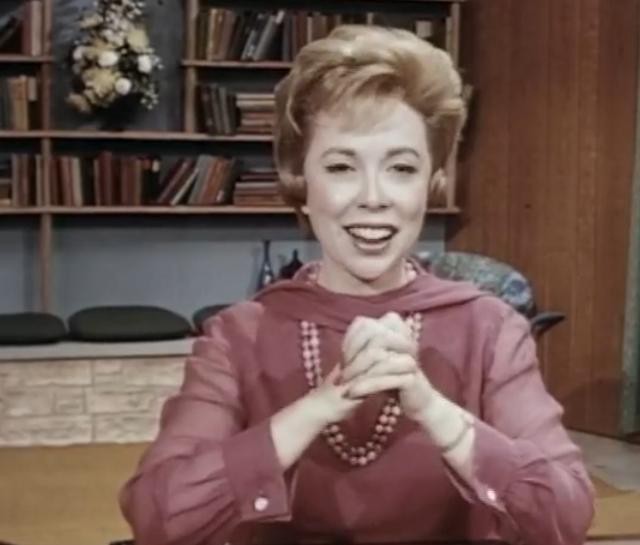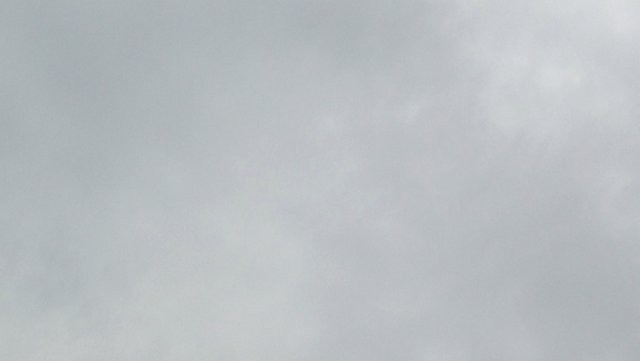Is There Anything About Silvio Berlusconi That Would Surprise You At This Point?
“Silvio Berlusconi’s private disco featured women dressed not just as sexy nuns and nurses but also as President Barack Obama and a prominent Milan prosecutor the former Italian premier has accused of persecuting him.”
What Was Next For Kai
“A homeless man who achieved brief Internet fame for disrupting a California attack with his hatchet was arrested and charged with homicide on Thursday in the killing of a New Jersey attorney found bludgeoned to death in his home, officials said. Police arrested Caleb Lawrence McGillvary, 24, known as ‘Kai the Hitchhiker,’ at a bus terminal in Philadelphia, Union County Prosecutor Theodore Romankow said…. The day after the killing, McGillvary met up with ‘fans’ in southern New Jersey and told them he was on his way to Philadelphia, the prosecutor’s office said.”
Woe, Woe, Your TumblrCities Lies In Dust

Mark Ghuneim and David Peris dug up this delicious chestnut from January, 1999: “Internet search engine Yahoo! Inc. confirmed Thursday it will buy GeoCities, a fast-growing Web site community, in a $3.6 billion deal that will further solidify Yahoo!’s position as a frontrunner in the online popularity contest.” RIMSHOT.
Makes a billion dollars for Tumblr seem like a steal. Here’s what I don’t understand: who’s blabbin’ about the potential acquisition of Tumblr by Yahoo!? Oh, gosh, whoever benefits from that. Tumblr made $13 million in 2012, so $1,000,000,000 sounds totally natural.
Oh, and how was GeoCities at the time of its Yahoo! acquisition? “In a separate announcement, GeoCities posted a net loss of $8.4 million…. For the year, the company lost $19.8 million.”
And How Is America's Human Rights Violation Nightmare Doing Today?
While you’re planning your outfits for this weekend, let’s check in with what’s going on at Guantanamo! There’ll be a live-chat at 2 p.m. today, but, spoiler! “The current hunger strike at Guantanamo has entered its fourth month, with resistance growing to involve 100 detainees. More medics have been flown in to assist with force-feeding 29 inmates, and five are currently hospitalized.”
Goodbye To America's Last Expert
by Kathleen Collins

Whether godless or godly, we all consult a private pantheon of authorities, living or dead, to gauge our comportment. We read ethics columns on subway trains and in cafes for vicarious solutions to our secret troubles. Since the days of Dear Abby and Ann Landers, the availability of emotional and behavioral self-help information has grown exponentially. In the digital age, now adrift in a wide, shallow sea of media outlets, wondering where to turn for advice only increases our anxiety. Cable TV and the Internet have left us splintered and atomized; they’ve negated the comforting clarity of our few favorite go-to gurus.
One such erstwhile guru has just left us for official divinity. You probably hadn’t seen Dr. Joyce Brothers on the small screen in a while (though you may still catch the AlertUSA emergency response ad in some TV markets) and were perhaps surprised that she had been yet among us. But if you are of a certain age, she was already wedged into your psyche, an unacknowledged aspect of your superego guiding your attitudes and behavior. For a significant hunk of the 20th century, millions of us asked: “What Would Dr. Joyce Brothers Do?”
A PhD research psychologist (Columbia University, ‘55), Brothers’ only clinical practice manifested itself at the one-to-many level via mass media. Her syndicated columns were read over breakfast tables for decades, but it was television that made her a household icon. Unlike TV stars like Ed Sullivan, Milton Berle, Phyllis Diller or Lucille Ball, contemporaries with whom she began her long, multi-faceted television career, Brothers stuck around for party after party and made herself useful. She was always there, in a variety of guises and venues, from the almost-beginning of TV in the mid-20th century to the almost-end of TV in the early 21st century, (and like Barbara Walters, Brothers’ career also mirrored television’s trajectory). Americans relied on her counsel for all manner of desperate issues and intractable problems. Journalists and talk show hosts consulted her on every imaginable subject from asking one’s boss for a raise, why we go gaga for the Beatles, what our movie preferences say about us, how to tell if your spouse is unfaithful and even how to cope with a national tragedy. The enormously eclectic range of topics she addressed spanned the decades, giving a snapshot of American cultural history: how to get a grip on gas line behavior, the streaking fad, the space shuttle explosion, the emotional benefits of answering machines, Pamela and Tommy Lee’s relationship, Princess Di’s death, the Monica Lewinsky scandal, the anthrax panic, and so on.
She was dismissed by some in the mental health profession for unabashedly promoting her pop brand of practice, a “one theory fits all” style that simplified complex concepts into sound bytes for mass digestibility. But many more credited her with professionalizing the field and counted her renown as a boon to their occupation. In the New York Times’ obituary, Margalit Fox aptly described Brothers’ guidance as “homiletic.” Brothers often delivered her mini-sermons via the pulpit of late night talk shows, and indeed her words could be construed allegorically and applied to numerous life circumstances. Elaine Rodino, former president of the American Psychological Association media division, put it so: for every response Brothers provided, “someone could take a personal goody from it.”
Referred to as “a maternal presence” and a “public moralist,” Brothers was our national therapist. A perennial guest on “The Tonight Show,” Johnny Carson would ask Brothers to “tell us what our problems are” or to “solve our problems.” She was a cultural guide who helped the public work through what was happening in the culture at any given time, a calm presence assuring us we are not alone in our oddities and shame. She was a clever entrepreneur and a benevolent opportunist who discovered how to provide a mass-scale service with a never-ending demand — understanding ourselves.
As a frequent guest on comedy variety shows, hour-long dramas and sitcoms, Brothers caricatured herself or her professional role, reinventing herself at any and every turn. She was as comfortable playing an alien in a metallic mini-skirt as she was counseling Fonzie’s dog. Unlike Ed Murrow, who believed the popular, celebrity-centric “Person to Person” was the price he had to pay for his preferred earnest “See It Now,” Brothers sought out and enjoyed the sillier avenues. She was a doctor and played one on TV, and it did not damage her credibility or trustworthiness or most-admired status a bit.
Nurturing a close connection with popular culture and current events — e.g. airing her comments on the relationship dynamics of Superman and Lois Lane or the soapy neighbors on “Melrose Place” — the issues that she addressed were always contemporary and relevant. She swayed with public opinion and TV execs’ whims (by design, they are the same thing) and met us where we were. Like a regular, in-the-flesh therapist, she listened to us, and we kept listening to her because she told us what we wanted to hear and lifted us up.
In response to a network news executive who claimed “there’s only one Barbara Walters,” Neal Gabler’s response is no; actually, “it is a testament to Ms. Walters that there are now so many.” And so it is with Joyce Brothers. She lent a generous hand to the field of psychology by skimming off the taboo and stigma, much like her contemporary Julia Child did with elite French cooking. Drs. Westheimer, Browne, Laura, Phil and Frasier Crane owe their media existence in large part to Dr. Joyce Brothers. Associates like Phil Donahue and Oprah Winfrey stepped in to help address the nation’s woes, but none has entirely filled Dr. Brothers’ shoes and none ever can or will. While our nation is, for the most part, proud of its inclusiveness and proud that it welcomes all manner of belief systems — the door is wide open for pet whisperers, super nannies, hoarder interventionists, and group celebrity addict counselors — it is difficult not to yearn for the solace of one expert.
What we have gained in our modern age necessitates a collective loss. We no longer have one late night talk show host, cooking teacher, political satirist, news anchor or psychologist to speak for us or tell us how to think. We have lots of them. It may have been naïve and docile of us to place all our faith in Walter Cronkite, but that faith was easier to find and the effect was more powerful. Trust is dissipated and weakened when there are so many sources to choose from. The pantheon of “experts” is now so big and democratic and populist that we resort to a cobbled together, Pinterested, crowd-sourced pastiche advice pile. Is more better? What would Dr. Joyce Brothers say?
Kathleen Collins is an associate professor and librarian at John Jay College of Criminal Justice (City University of New York) and the author of Watching What We Eat: The Evolution of Television Cooking Shows (Continuum 2009). She is at work on a book about, yes: Dr. Joyce Brothers.
New York City, May 15, 2013

★★★ The IRS hold music played and played as the briefly clear morning darkened over. The toddler came back from the park, chased by drizzle. Most of the flame-colored tulips had blown out, leaving only the pink, hairy-edged ones standing. The early chill had brought out leather and leatherette, probably the last chance for that. By late afternoon that chance was over, the sun returning, the air heavy and warm. The buildings away down Amsterdam whitened in the haze, as if pressed under layers of waxed paper. The sun was a zone of brightness, the way painters depict it in the pink Martian sky. Twilight didn’t fall over the city so much as condense out of the air, everywhere at once.
Yet Another Penis Bitten In Florida
“When her amorous advances were repeatedly rejected by her live-in boyfriend, Krystle Harrison allegedly ‘bit his penis’ in retaliation, police allege.”
Gunplay, "Bible On The Dash"
Once when I was driving on Route 80 in Pennsylvania, I passed a car being driven by a man holding a book open between his two hands on the steering wheel. It was a thick book, like a big novel, and he was reading it while driving 65 miles per hour on the highway. This seemed like one of the more dangerous things I had ever seen. So I hope Gunplay doesn’t try to, like, look up any particular passages of scripture while he’s rolling. But this is a great song.
Old Hick Paper Now Glossy Hick Mag
As a man of a certain age, every now and again I wonder if Grit still exists. Turns out it does! It’s a funny old world.
